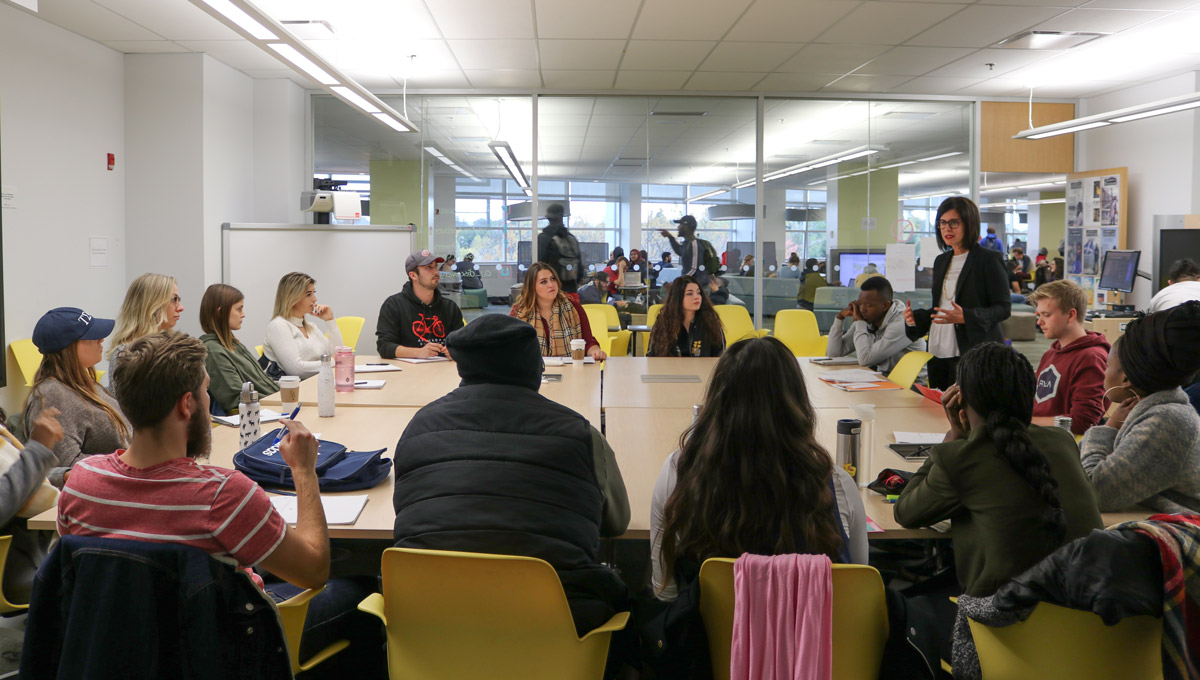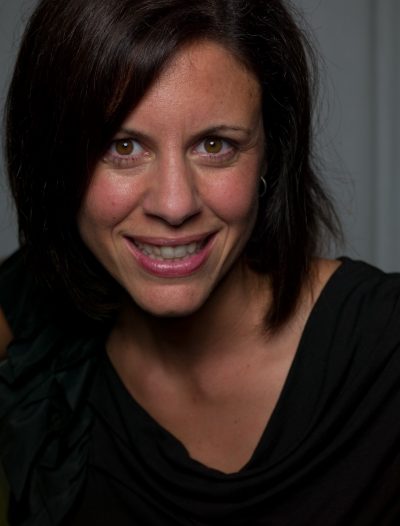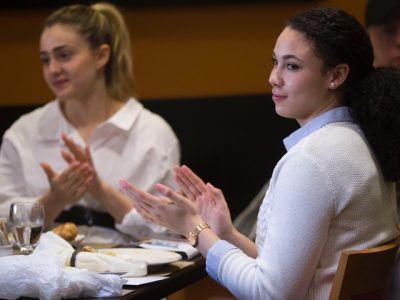By Christina Spence and Jane van den Dries
Carleton has launched a new program that will highlight teaching excellence and act as a springboard to foster student success and social change.
The three-year Chair in Teaching Innovation appointment will be awarded to educators who have demonstrated teaching excellence and innovation across their academic careers.
Funded by Teaching and Learning Services, with support from the Office of the Provost and Vice-President (Academic), the initiative will provide faculty members with $45,000 spanning three years to undertake scholarly projects to advance teaching excellence at Carleton.
The goal of the initiative is to recognize Carleton’s top educators and encourage faculty to develop a scholarly approach to teaching and learning across the university, with a particular emphasis on strategies to foster student success.
“We are committed to teaching, learning and innovation at Carleton,” says David Hornsby, associate vice-president (Teaching and Learning).
“As an institution, it is important that we provide these opportunities for our faculty to engage in reflection and to take a research-led approach to their teaching practices because, ultimately, it will lead to greater student success and positive social change.”
The Chair in Teaching Innovation enhances the Discovery Centre Fellowship as Carleton’s top teaching award to provide more resources and enable faculty members to undertake more in-depth research and scholarship.
As recipients of the 2019 Discovery Centre Fellowship, Melanie Adrian (Department of Law and Legal Studies) and Mira Sucharov (Department of Political Science) have been appointed as inaugural chairs.
“On behalf of Carleton University, I am pleased to acknowledge and congratulate Melanie Adrian and Mira Sucharov on this achievement,” said Provost and Vice-President (Academic), Jerry Tomberlin.
“Both Melanie and Mira are outstanding educators and we are looking forward to seeing the implementation of the projects they are leading. Carleton values innovation that leads to social change.”

Adrian Building on Advocacy Initiatives
The funding will provide Adrian with an opportunity to develop an experiential learning conference to help students build advocacy skills.
She organized the inaugural “University: Uncensored, Ottawa Summit for Academic Freedom” conference in September. Carleton alumni and students, including those from Adrian’s fourth-year law seminar entitled “Academia and Activism” attended the 1.5-day event that combined theory, practice and models of advocacy in action.

Prof. Melanie Adrian
Working with Carleton Scholars at Risk and the global Scholars at Risk network, initiatives that advocate for scholars who are imprisoned or discriminated against because of their research, Adrian’s students learned how to create an advocacy platform that was put into action throughout the semester.
These types of experiences help support the particular scholar, but they are also a reflection of how theory and practice can be linked to help students professionalize and build international networks.
Beyond creating high-impact experiential learning practices and building students’ skills, Adrian says she is using the project as a way to reflect on how Carleton’s core mission translates to the classroom in a way that makes sense for students pursuing their dreams and professional ambitions.
“I am both pleased and honoured to receive this distinction and this award,” Adrian said.
“I am so thrilled that Carleton University has created these chairs and is focusing research, time and resources on better understanding pedagogy at the university level.”
Sucharov Spearheading Course Simulations
Sucharov (Political Science) will develop two role-play course simulations that involve a direct analysis of the dynamics of power, privilege and oppression. The simulations will be incorporated into undergraduate courses on Israel and Palestine, and world politics.
To Sucharov, the project is about inviting students to deploy their own subjectivity within and alongside the roles they are assigned.
“My hope is that we can think about the role of subjectivity, experience, and various types of marginalization and oppression in thinking about how we go about doing politics,” she said.

Prof. Mira Sucharov
As with all experiential learning activities, the project will help students understand course material in a meaningful way. Sucharov’s goal is to help students learn the material more fully and in an enveloping way.
Sucharov, who has won every major teaching award at Carleton in addition to the Ontario Confederation of University Faculty Associations (OCUFA) Teaching Award – the highest post-secondary teaching distinction in Ontario – says that the new Chair in Teaching Innovation appointment signals that the academy, and Carleton University specifically, values teaching and taking risks in teaching.
“I love the moment-to-moment and face-to-face dynamism of teaching in real time,” she said. “Parallel to this, I’ve always been passionate about chipping away at the problem of suffering in the Israeli-Palestinian relationship. At minimum, I hope to help my students think about how to be more engaged global citizens. If I can pass on the baton on this, I will be content.”
Next Round of Applications Due April 30
The next round of applications for the Carleton University Chair in Teaching Innovation is April 30, 2020. More information is available on the Teaching and Learning Services website.
Friday, November 22, 2019 in Faculty of Public Affairs, Provost, Teaching and Learning
Share: Twitter, Facebook



